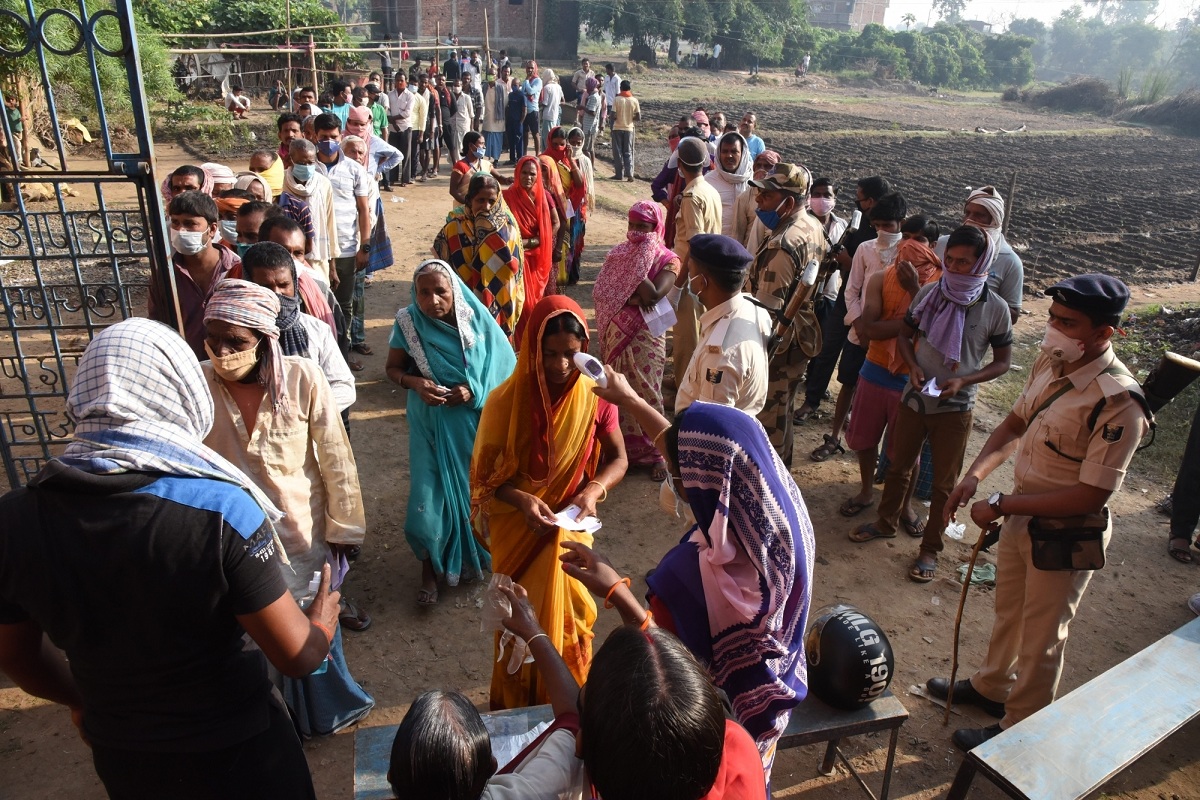Voting for single-phase Maharashtra assembly election begins
Voting began at 7 am on Wednesday for the single-phase Maharashtra assembly elections and will conclude at 6 pm. Polling is taking place across 288 assembly constituencies.
The voter turnout across 25 Lok Sabha seats in two phases on 19 April and 26 April stands at 61.53 per cent as against 66.34 per cent in the 2019 general election, marking a decrease of 4.81 per cent.

Voter turnout in Rajasthan drops by 4.81% as compared to 2019 polls (Photo: IANS)
Despite the concerted efforts of political parties and the Election Commission of India (ECI) to increase voter turnout in Rajasthan, this year’s voting percentage dropped by 4.81 per cent compared to the 2019 LS elections following the completion of two phases.
The voter turnout across 25 Lok Sabha seats in two phases on 19 April and 26 April stands at 61.53 per cent as against 66.34 per cent in the 2019 general election, marking a decrease of 4.81 per cent.
With the BJP aiming for a hat-trick victory after sweeping the 2014 and 2019 elections across 25 LS seats in Rajasthan, the electoral landscape presented a varied picture. There were triangular contests on two LS seats, and neck-and-neck battles on 11 seats due to anti-incumbency sentiments against Union Ministers, sitting MPs, the Lok Sabha Speaker and the state party president. Straight contests took place on 12 LS seats due to the emergence of new faces and the presence of 8 women candidates.
Advertisement
Altogether 266 contestants vied for victory, with notable figures from the BJP including eight bigwigs: Lok Sabha Speaker Om Birla, four Union Ministers Gajendra Singh Shekhawat, Kailash Choudhary, Arjun Ram Meghwal, and Bhupendra Yadav. The list included five sitting MPs PP Choudhary, Bhagirath Choudhary, Dushyant Singh, SS Jaunapuria, Sumedananad Saraswati, and state BJP president C P Joshi. The political fortunes of four sitting MPs were also locked in the EVMs.
Besides BJP, Congress’ former assembly Speaker Dr C P Joshi, sitting MLA Harish Meena, and Vaibhav Gehlot, son of former Congress Chief Minister Ashok Gehlot will also wait for their political fate till June 4 when the counting will begin.
Having faced triangular contests on two seats, the Barmer and Banswara LS seats recorded the maximum turnout of 75.95 and 73.88 per cent of the electorate, respectively.
In the Banswara constituency, despite the Congress high command’s directive for Congress candidate Arvind Damor to withdraw his nomination, the Banswara seat turned into a triangular contest. The stakes were high, especially for Prime Minister Narendra Modi, who held a public meeting in support of Mahendrajeet Singh Malviya, who defected from the Congress and joined the BJP. Besides, sitting MLA Raj Kumar Roat, supported by the INDIA bloc, also contested the seat on his Bharatiya Adivasi Party (BAP) ticket.
In Barmer, Independent candidate and sitting MLA Ravindra Singh Bhati transformed the election into a three-way battle, challenging BJP Minister Kailash Choudhary and Congress’ Umeda Ram Beniwal. Fortunately, Bhati received open support from Congress veteran leader Ameen Khan, who lost in the previous assembly polls in 2023. Considering it as an anti-party activity, the Congress party suspended former MLA Ameen Khan of Sheo constituency and party functionary Balendu Singh Shekhawat.
There were neck-and-neck contests on 11 LS seats due to anti-incumbency sentiments against Union Ministers, sitting MPs, Lok Sabha Speaker and state party president, and straight contests on 12 LS seats due to new faces and 8 women candidates.
Advertisement